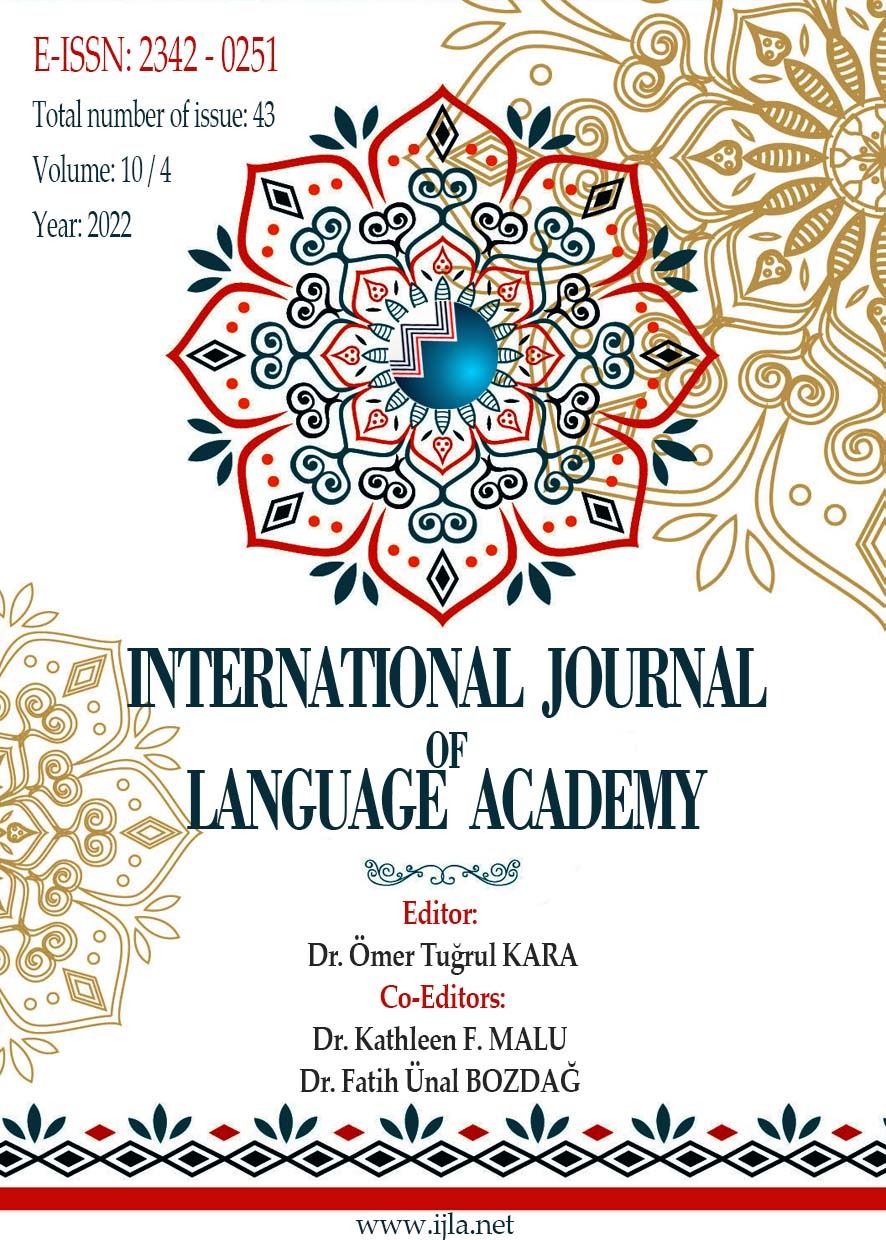Conceptualization of Europe Union in Turkish Newspaper Opinion Articles in Pro and Anti-Government Newspapers
Author :
Abstract
Keywords
Abstract
Cognitive linguistics defines metaphor as the understanding of one conceptual domain (target domain) in terms of another conceptual domain (source domain) (Lakoff & Johnson 1980, 1989; Kövecess 2010, p.4). The source-to-target mappings can change according to people's worldviews, background knowledge, and experiences (Kövecess 2010,p. 4). Newspaper genre is generally accepted as one of the most important samples of persuasive text genre. Fowler (1999,p. 1) states that “newspaper language is not impartial but on the contrary, it is a highly constructive mediator”. Thus newspapers with different ideologies present the same event differently with different focuses. Metaphors are heavily used in newspaper to achieve the ideological purposes (Krennmayr 2011, Charteris -Black, 2004). The study aims to analyze how “Europe Union” is conceptualized through conceptual metaphors in Turkish newspaper opinion articles and their role in reflecting the scope and nature of newspapers’ ideologies. The data consisted of fifty opinion articles published from 2016 to 2021 randomly selected from four elite newspapers with different ideologies: pro-government and anti-government. Data analysis drew on Lakoff and Johnson's (1980, 1989) conceptual metaphor theory. Also, the corpus was analysed using the Antconc 3.1. software program that enables concordance and text analysis. Quantitative and qualitative methods were applied using both Corpus Linguistics Analysis (CLA) and Critical Metaphor Analysis (CMA) that is the part of Critical Discourse Analysis (CDA). Thus the frequency of conceptual metaphors used in the data was identified. Results revealed some differences in the usage and distribution of conceptual metaphors between the two sets of data according to the ideological viewpoint.
Keywords
- Baker, P., Gabrielatos C., Khosravinik, M., Krzyzanowski, M., McEnery, T. & Wodak, R. (2008). A useful methodological synergy? Combining critical discourse analysis and corpus linguistics to examine discourses of refugees and asylum seekers in the UK press. Discourse & Society, 19(3), 273-305
- Baškarada, S. (2014). Qualitative case study guidelines. The Qualitative Report, 19(40),1- 18.
- Cammaerts, B. (2012). The strategic use of metaphors by political and media elites: The 2007–11 Belgian constitutional crisis. International Journal of Media and Cultural Politics, 8(2&3), 229-249.
- Charteris-Black, J. (2004). Corpus approaches to critical metaphor analysis. Basingstoke: Palgrave Macmillan.
- Fowler, R. (1991). Language in the news: Discourse and ideology in the Press. London: Routledge
- Kövecess, Z. (2010). Metaphor a practical introduction. Oxford University Press: New York
- Krennmayr, T. (2011).Metaphor in newspapers (Unpublished PhD Thesis). Vrije Universiteit Amsterdam, Utrecht.
- Kuhi, D. & Mojood, M. (2014). Metadiscourse in Newspaper Genre: A Cross-linguistic Study of English and Persian Editorials. Proce-dia-Social and Behavioral Sciences, 98, 1046-1055
- Lakoff, G. & Johnson, M. (1980). Metaphors we live by. Chicago: University of Chicago Press
- Lakoff, G., & Johnson, M. (1989). More than cool reason: A field guide to poetic metaphor. Chicago: University of Chicago Press
- Lakoff, G., & Johnson, M. (1999). Philosophy in the Flesh: The Embodied Mind and Its Challenge to Western Thought. New York: Basic Books.
- Martin, J. R., & White, P. R. R. (2005.) The Language of evaluation: Appraisal in English. London: Palgrave
- Pragglejaz Group. (2007). MIP: A Method for identifying metaphorically used words in Discourse.Metaphor and Symbol, 22(1), 1-39.
- Simon-Vandenbergen, A. M. (2003). Lexical metaphor and interpersonal meaning. A. Simon-Vandergen, M. Taverniers and L. Ravelli (Eds), Grammatical metaphor: Views from systemic functional linguistics (pp.223–256). Amsterdam: Benjamins Publishing
